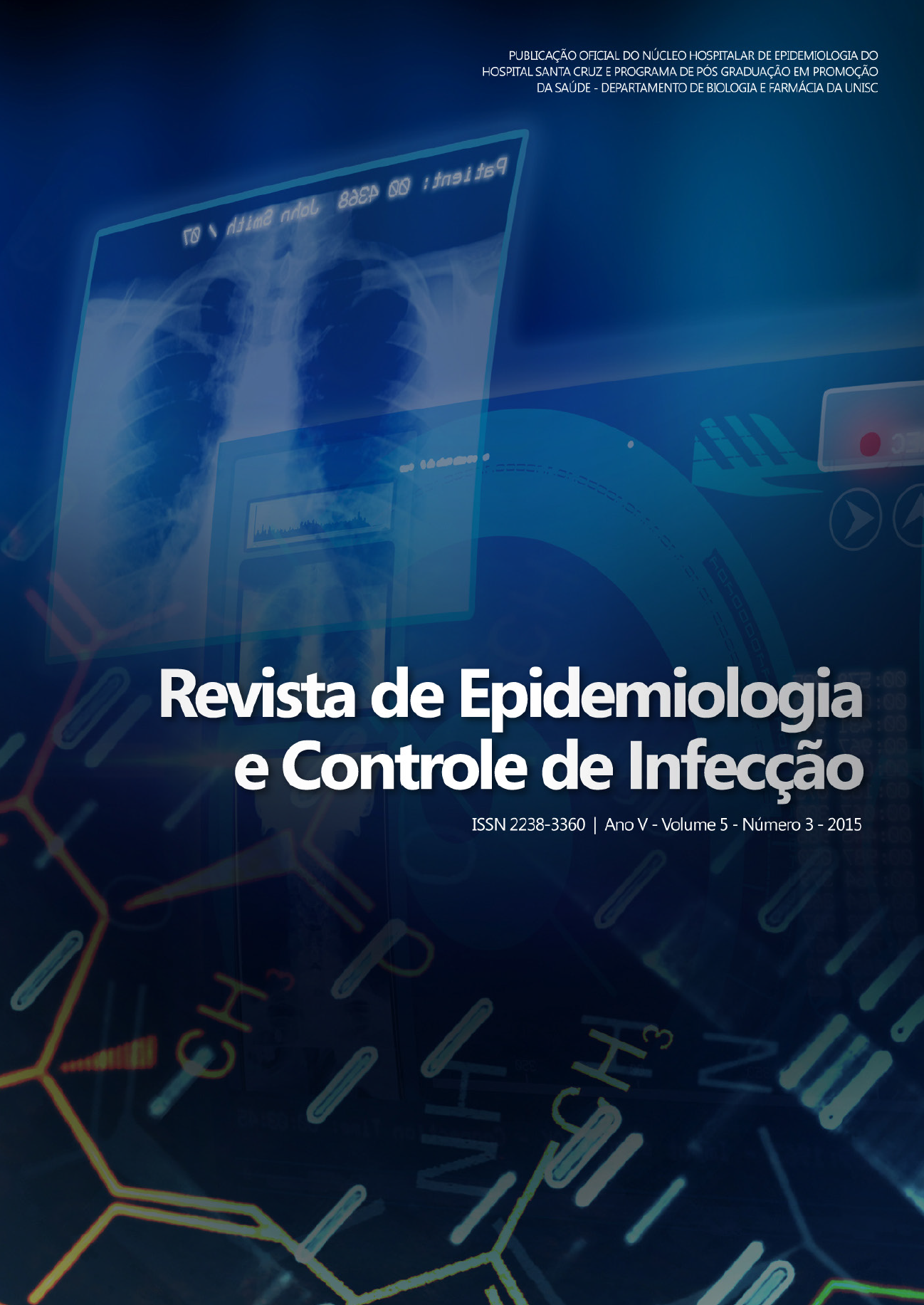Epidemiology of accidents with poisonous animals registered in Nova Xavantina – MT
DOI:
https://doi.org/10.17058/reci.v5i3.5724Abstract
Background and Objective: Accidents with poisonous animals are a public health problem in Brazil, especially in countryside cities. Updated regional information is important for the development of epidemiological surveillance activities. Through this research, we determined the epidemiological aspects of the cases registered in Nova Xavantina, State of Mato Grosso, Brazil, from January 2007 to May 2013. Methods: This is a cross-sectional and descriptive epidemiological study. Results: In this period, 68 accidents occurred, of which 44 were caused by snakes, 19 by scorpions, and four by spiders. Most accidents with snakes were caused by the genera Bothrops (79.5%), Crotalus (11.5%), and Micrurus (2.3%). As for the victims, there was a prevalence of males (76.5%), aged between 30 and 49 years (41.2%) of mixed race (72.1%), with basic education (55.9%) involved in field activities, such as agriculture and livestock (41.2%).There was a predominance of accidents of moderate severity (48.5%) and all serious cases were caused by snakes. In most injuries (75%), the relationship between the accidents and occupational activities was not recorded. The most affected body regions were the feet (39.7%), legs (20.6%), and hands (11.8%). The predominant local manifestations were pain, swelling, and bruising. The predominant systemic manifestations were hemorrhage, nausea and vomiting. Conclusion: The study period was characterized by the predominance of accidents involving snakes and male individuals in field activities and of moderate severity. Thus, educational campaigns and the adoption of preventive measures are essential to reduce the occurrence of these diseases in this city. KEYWORDS: Poisoning; snake bites; Scorpion Stings.Downloads
Downloads
Published
How to Cite
Issue
Section
License
The author must state that the paper is original (has not been published previously), not infringing any copyright or other ownership right involving third parties. Once the paper is submitted, the Journal reserves the right to make normative changes, such as spelling and grammar, in order to maintain the language standard, but respecting the author’s style. The published papers become ownership of RECI, considering that all the opinions expressed by the authors are their responsibility. Because we are an open access journal, we allow free use of articles in educational and scientific applications provided the source is cited under the Creative Commons CC-BY license.


